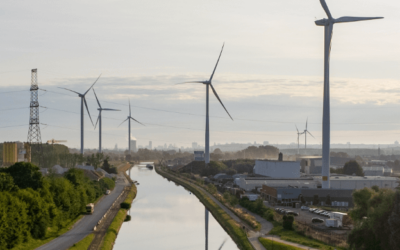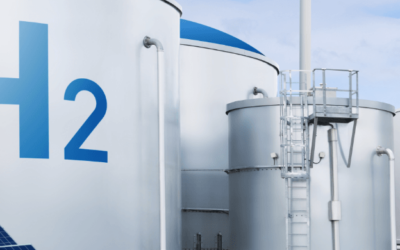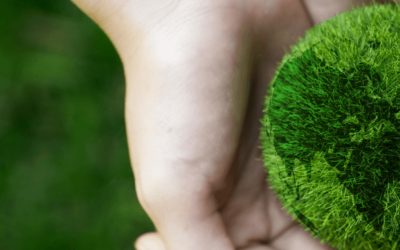The Dutch government recently sent its national ‘Recovery and Resilience Plan’ to Brussels for approval. The plan sets out a total of 49 measures: 21 reforms and 28 investments, adding up to a total of 5 billion euros (this is contingent on the European Commission’s approval). This article reviews the plans for new grants and investments related to energy, climate and mobility.
COVID Recovery Fund of 750 billion euros
Some background on the European Commission’s Recovery and Resilience Facility (RRF): in 2020, the EU decided to create a large-scale COVID recovery fund to support the Member States in rebuilding their economies after the COVID pandemic. The stimulus fund’s total budget was 750 billion euros. Each Member State was asked to draft a national plan, outlining the areas they intended to prioritise in allocating these EU funds. The Dutch Recovery and Resilience Plan’ (RRP) – or in Dutch ‘Herstel- en Veerkrachtplan’ (HVP) – was completed only recently and was formally submitted to the European Commission on 8 July.
What does the Dutch Recovery and Resilience Plan involve?
The Dutch plan consists of a list of 49 tangible measures/plans, some of which are new and some of which had been revealed some time ago. The measures are divided into two separate categories: reforms and investments. While a total of 21 of the reforms mainly concern amendments of tax regulations, our readers are more likely to be interested in the 28 investment plans. Below, we take a look at the most noteworthy funding-related investment plans.
The plan covers the following areas: green transition; the digital transformation; affordable and sustainable homes; improving labour market conditions and healthcare; and addressing tax evasion. In this article, we will focus on the grants and investments related to energy, climate and mobility.
Focus area: Promoting green transition
This focus area concerns investments in some of the following areas:
- Offshore wind energy. Since wind farms are vital to the energy transition in the Netherlands, the Dutch government is designating additional wind energy areas in the North Sea Programme for 2022-2027. While the actual wind parks are not eligible for grants, an investment of 899.6 million euros is required for the related integration costs (including shipping safety, funding for North Sea ecosystem/environmental preservation, and on-shore power connections).
- Green power of hydrogen. This involves a 68.5 million euros investment in the ecosystem for green hydrogen for the chemical, transport and heavy industry sectors. It represents a recent increase in the DEI+ grant for demonstration facilities. In addition, an NWO programme will be launched to support research projects focusing on production, storage, transport and the use of green hydrogen. The plan is to launch a minimum of five research projects (from TRL 2-8). Finally, a specific ‘human capital agenda’ (HCA) programme will be introduced, focusing on knowledge exchange and supplying qualified personnel with expertise in hydrogen. The related funding will be divided through NWO.
- ZES grant for clean inland waterways. As part of its efforts to fully electrify its inland waterway sector, the Dutch government is investing 56 million euros in ZES, a project designed to generate the critical mass required: 75 Modular Energy Containers (MECs), 14 loading facilities and 45 electric barges. Under the plan, vessel operators who intend to switch to electric shipping can rent replaceable battery containers through ZES. This means they do not need to make this substantial investment themselves and only pay for the electricity consumed.
- Aviation in Transition. This is a multiannual programme designed to make the Dutch aviation industry more sustainable. Some sections of the industry will receive 28.7 million euros in RRP funding (including for the construction of hydrogen-powered demonstration aircraft and Hydrogen Fuel Cell Electric Power (HFCEP) aircraft.
Focus area: Accelerating the digital transformation
The Dutch Recovery and Resilience Plan contains no fewer than nine major investments related to the digital transformation. Rather than being ready-made grant schemes, these investments relate, for example, to promoting key innovations through ongoing multiannual programmes such as Quantum Delta NL, AiNed and Boosting digitalisation in Dutch education.
There is also a special focus on the transport/mobility sector. For example, the Digital Logistics Infrastructure programme (aimed at making the logistics industry digital-ready, including through living labs) will be launched in autumn 2022.
The Dutch government is also investing in digital innovations for railways (European Rail Traffic Management Systems – ERTMS), Intelligent Traffic Control Systems (ITCS), European Train Control Systems (ETCS) and Intelligent Roadside Systems (IRS).
Focus area: Housing market and built-up environment
The Dutch Recovery and Resilience Plan cites three investments relating to this focus area:
- Boost for homebuilding (‘Woningbouwimpuls’). This is a grant allocated for municipal construction projects. Three application rounds/tranches have already been completed, with the fourth round scheduled from mid-August to 18 September 2022 (budget: 300 million euros). The fifth application round is scheduled to open and close in April 2023 (total budget: 200 million euros). The remaining budget (750 million euros) will be distributed through different tranches (yet to be determined).
- Funding Scheme for Sustainable Public Real Estate (‘DUMAVA’). The recently announced DUMAVA scheme will encourage owners of existing public real estate to invest in sustainability measures. The first application round will run from 3 October 2022 to the end of 2023 (total budget available: 150 million euros). This will be followed by a second round, which will run from 1 January 2024 to no later than December 2024 (budget: 200 million euros).
- Investment grant for Sustainable Energy and Energy Efficiency (‘ISDE’). The Dutch ISDE scheme promotes investments for residential homes in heat pumps, solar boilers, insulation and heat grid connections. While most ISDE grants are intended for owner-occupiers, businesses can also apply for grants (for heat pumps and solar boilers). Between 2022 and 2024, the Dutch government is set to provide approximately 288 million euros for hybrid water pumps. This makes it possible to increase the grant amount for heat pumps from 20% to 30% per system.
In conclusion: REPowerEU – ‘what’s next’?
Finally, it is worth noting that the RRP framework has also been used to submit proposals for the new REPowerEU initiative (note that the Dutch government did this at the European Commission’s request). REPowerEU is Brussels’ ‘answer’ to the Russian invasion of Ukraine, through which the EU intends to phase out its reliance on Russian fossil fuels. The Dutch Recovery and Resilience Plan contains several proposals to this effect (see above), making the plan eligible for additional EU funds.
What happens next? Total investments under the Dutch Recovery and Resilience Plan add up to 5.2 billion euros – more than the 4.7 billion euros the EU had originally earmarked for the Netherlands. In allocating this larger amount, the Dutch government is anticipating possible modifications made by the European Commission. We probably won’t have to wait long for news from Brussels: the European Commission is scheduled to present its decision as early as this autumn (likely by 8 September). Interested readers can access a copy of the Dutch Recovery and Resilience Plan here (PDF of approx. 500 pages; Dutch only).
What can we do for you?
EGEN’s experts are the first to be informed on current (and new) funding opportunities, regardless of whether they relate to advances in technology, the energy transition, mobility, or strategic partnerships. Our expertise covers all sectors, industries and areas of technology. If you would like to know more about our services, feel free to send us a brief message using the contact form below.


